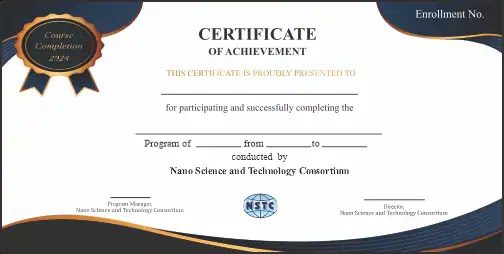About
Join the most in-demand online training in cancer genomics and CRISPR gene editing!
This one-month intensive online certification program bridges the gap between traditional cancer biology and modern molecular techniques like CRISPR-Cas9, bioinformatics, and next-generation sequencing (NGS).
Participants will gain hands-on skills in genetic data analysis, understand oncogenic mutations, and learn to design CRISPR experiments for cancer gene editing. The program also emphasizes the role of machine learning and AI in cancer diagnostics and research.
This course is ideal for professionals and students looking to excel in genomics, precision medicine, and personalized cancer treatment.
Aim
This program aims to provide cutting-edge, research-ready training in CRISPR-based gene editing, bioinformatics tools, and AI-powered cancer diagnostics, enabling participants to contribute to clinical innovations and translational research in oncogenomics.
Program Objectives
- Understand how genetic mutations drive oncogenesis and cancer progression.
- Learn CRISPR-Cas9 gene editing for cancer gene modulation.
- Analyze cancer data using bioinformatics tools like Galaxy, Ensembl, Bioconductor.
- Explore the ethical & legal aspects of gene editing in clinical settings.
- Build practical experience through dissertation-ready projects and real datasets.
Program Structure
Week 1: Cancer Biology & CRISPR-Cas9
- Cancer Genetics: Tumor suppressors, oncogenes, mutation types
- CRISPR-Cas9 Mechanisms: Real-world applications in oncology
- Bioinformatics Basics: BLAST, Ensembl, UCSC Genome Browser
- gRNA Design: Tools like Benchling, CRISPOR
Week 2: Clinical Applications of CRISPR in Cancer
- Gene Knockout Models for Tumor Studies
- Enhancing Tumor Suppressors with Precision Editing
- Interpreting CRISPR Data with NGS Tools
- Ethics in Human Gene Editing & Clinical Trials
Week 3: Bioinformatics & Machine Learning in Cancer Research
- NGS Data Analysis (Illumina, RNA-seq)
- High-throughput Genomics: Workflow optimization
- Omics Integration: Transcriptomics, Proteomics
- ML for Cancer Detection: Mutation prediction models
Week 4: Translational Oncology & Future Technologies
- CRISPR Clinical Trials: CAR-T, Sickle Cell Therapy
- Personalized Medicine: Using Genomic Profiles in Treatment Planning
- Advanced Editing: Cas12, Cas13, Base Editors, Prime Editing
- Research-to-Clinic Transition: Innovation pathways
Intended For
- Undergraduate degree in Biology, Genetics, Biotechnology, or related fields.
- Professionals working in biomedical, biotechnological, and pharmaceutical sectors.
- Researchers and academics with an interest in genetic engineering and cancer research.
Program Outcomes
- Mastery in CRISPR-Cas9 design & applications in cancer
- Proficiency in NGS tools & cancer bioinformatics platforms
- Skills in integrating AI & machine learning in diagnostics
- Real-world project portfolio for PhD, job interviews, or publications
- Strong understanding of regulatory and ethical compliance
Key Takeaways
- Access to e-LMS
- Real Time Project for Dissertation
- Paper Publication Opportunity
- Self Assessment
- e-Certification
- e-Marksheet

Future Career Prospects
- Genetic Research Scientist
- CRISPR Lab Technician
- Cancer Genomics Analyst
- Bioinformatics Specialist
- Pharmaceutical R&D Scientist
- Clinical Geneticist











Reviews
There are no reviews yet.